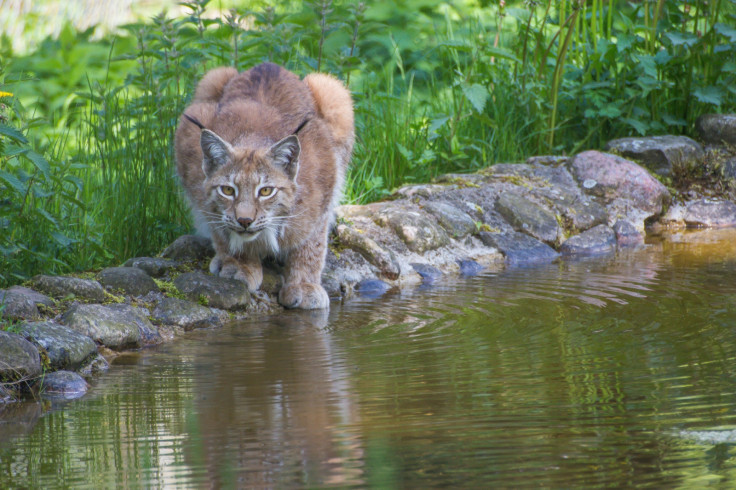Lynx and other native big cats to be reintroduced to Britain's forests in 2016

Britain's forests could be home to the lynx for the first time in 1,300 years. The Lynx Trust is asking for permission to carry out a five-year trial in forests located in Cumbria, Aberdeenshire, Argyll & Bute as well as Northumberland.
Two of the wildlife areas are marked out as suitable dens for three male and three female lynx. Wildlife experts report that the plan could be a considerable boost for Britain's ecology and economy.
Re-introducing big cats to the wild could help hard-hit rural areas by bringing in millions of pounds through eco-tourism revenue. "They promote forest regeneration. In the UK, forests are dying. There's no regeneration of younger trees coming through because of the massive overpopulation of deer," said Dr Paul O'Donoghue, who is co-ordinating the trial.
"Lynx will help to both control and move deer around, which will promote forest regeneration," he told Sky News.
Farmers were concerned that having wild cats who are predators could post a risk to their livestock. Andrew Bauer, of the National Farmers' Union in Scotland, told Sky News: "Our main concern is losses of sheep and lamb.
"In Norway, where they have more trees, they lose tens of thousands of sheep and lamb every year to lynx and wolves. We may not have the same level of forest cover in the UK at the moment but, certainly in Scotland, we're planting a lot more trees and we're going to see a lot more sheep and lamb in amongst forestry."
National Farmers Union of Scotland deputy director of policy Andrew Bauer said: "Farmers are quite right to question why and how lynx, absent from Scotland since medieval times, should be reintroduced.
"Alongside trumpeting the benefits, those who advocate lynx reintroduction should be up front about the potential impacts on Scotland's hugely important sheep farming industry and the potentially very significant cost to the public purse.
"Anyone who is concerned about lynx reintroduction should take heart from the fact that any such proposal would be subject to a considerable level of scrutiny."
No danger to people
The Lynx Trust says the lynx are not a danger to humans – but to address safety concerns, the animals will be fitted with GPS collars. The wildlife organisation hopes to gain a licence by the end of 2016.
Natural England and Scottish Natural Heritage which will make a decision on whether the trial should go ahead.
The lynx, an original native of the British Isles, is a wild cat that has been forced out of much of Western Europe by habitat destruction and human persecution over the last 2,000 years. The last of the British lynx disappeared around 700AD, hunted to extinction for its fur, according to the Lynx Trust.
Focussing on hunting deer species and a variety of smaller mammal prey, the lynx has a solitary nature.
Reintroductions into other European countries have been successful, with the programmes constructing new eco-friendly industries, such as wildlife tourism.
In 1995, a similar program saw packs of grey wolves being reintroduced to the Yellowstone National Park. Over the next 10 years, the predators' hunting of grazing animals led to dramatic changes in the park's environment.
© Copyright IBTimes 2024. All rights reserved.






